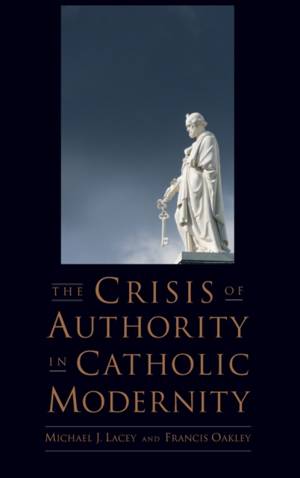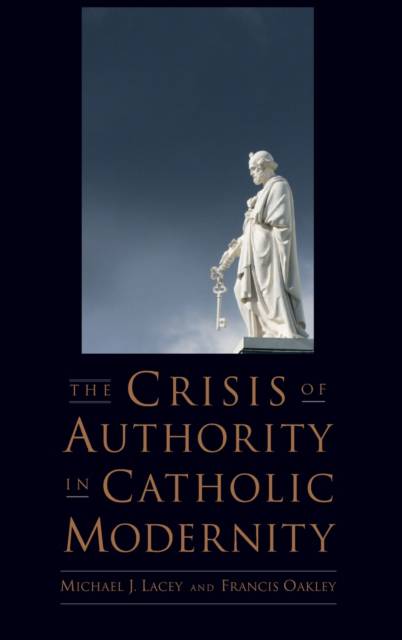
Door een staking bij bpost kan je online bestelling op dit moment iets langer onderweg zijn dan voorzien. Dringend iets nodig? Onze winkels ontvangen jou met open armen!
- Afhalen na 1 uur in een winkel met voorraad
- Gratis thuislevering in België vanaf € 30
- Ruim aanbod met 7 miljoen producten
Door een staking bij bpost kan je online bestelling op dit moment iets langer onderweg zijn dan voorzien. Dringend iets nodig? Onze winkels ontvangen jou met open armen!
- Afhalen na 1 uur in een winkel met voorraad
- Gratis thuislevering in België vanaf € 30
- Ruim aanbod met 7 miljoen producten
Zoeken
€ 164,45
+ 328 punten
Uitvoering
Omschrijving
One deep problem facing the Catholic church is the question of how its teaching authority is understood today. It is fairly clear that, while Rome continues to teach as if its authority were unchanged from the days before Vatican II (1962-65), the majority of Catholics - within the first-world church, at least - take a far more independent line, and increasingly understand themselves (rather than the church) as the final arbiters of decision-making, especially on ethical questions. This collection of essays explores the historical background and present ecclesial situation, explaining the dramatic shift in attitude on the part of contemporary Catholics in the U.S. and Europe. The overall purpose is neither to justify nor to repudiate the authority of the church's hierarchy, but to cast some light on: the context within which it operates, the complexities and ambiguities of the historical tradition of belief and behavior it speaks for, and the kinds of limits it confronts -
consciously or otherwise. The authors do not hope to fix problems, although some of the essays make suggestions, but to contribute to a badly needed intra-Catholic dialogue without which, they believe, problems will continue to fester and solutions will remain elusive.
consciously or otherwise. The authors do not hope to fix problems, although some of the essays make suggestions, but to contribute to a badly needed intra-Catholic dialogue without which, they believe, problems will continue to fester and solutions will remain elusive.
Specificaties
Betrokkenen
- Auteur(s):
- Uitgeverij:
Inhoud
- Aantal bladzijden:
- 392
- Taal:
- Engels
Eigenschappen
- Productcode (EAN):
- 9780199778775
- Verschijningsdatum:
- 6/04/2011
- Uitvoering:
- Hardcover
- Formaat:
- Ongenaaid / garenloos gebonden
- Afmetingen:
- 236 mm x 163 mm
- Gewicht:
- 632 g

Alleen bij Standaard Boekhandel
+ 328 punten op je klantenkaart van Standaard Boekhandel
Beoordelingen
We publiceren alleen reviews die voldoen aan de voorwaarden voor reviews. Bekijk onze voorwaarden voor reviews.











